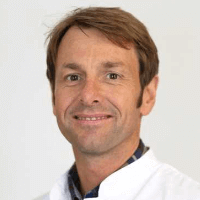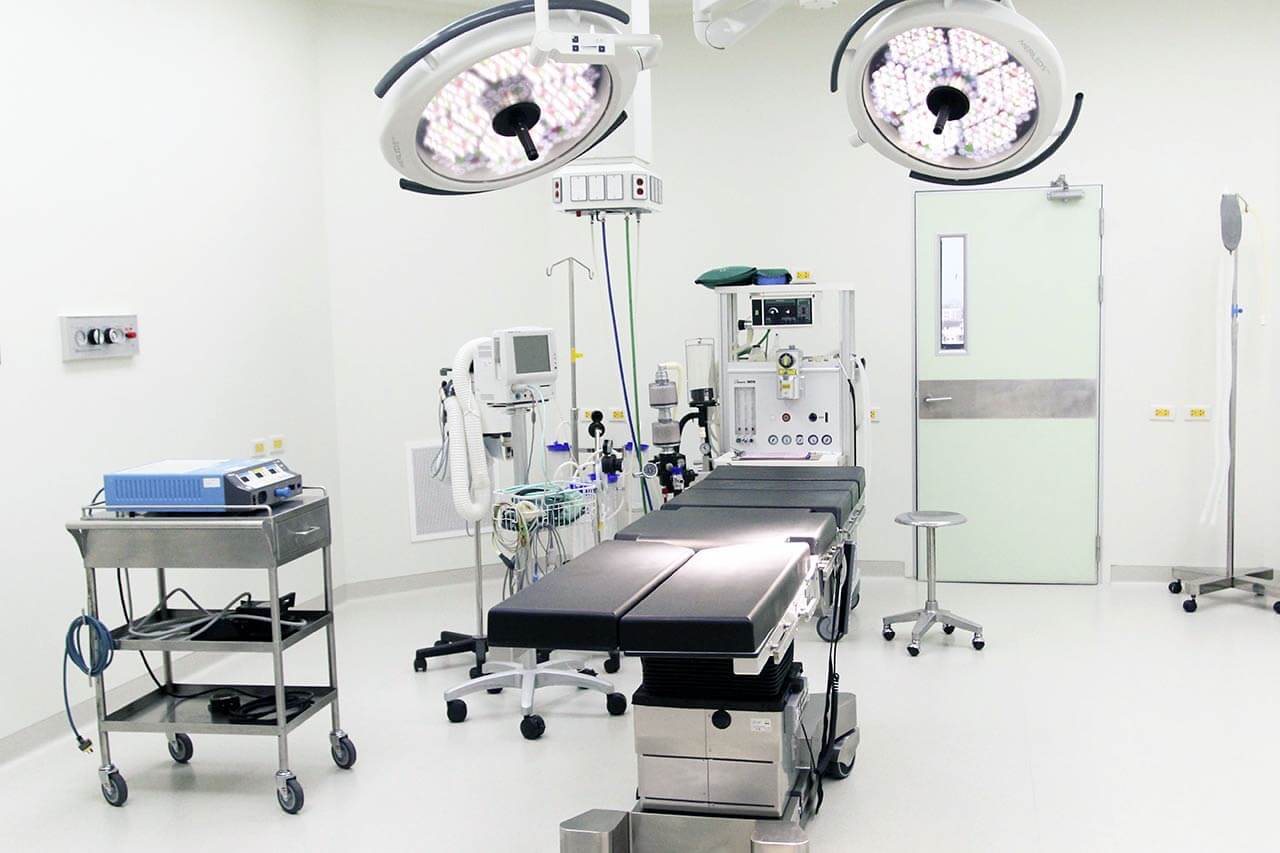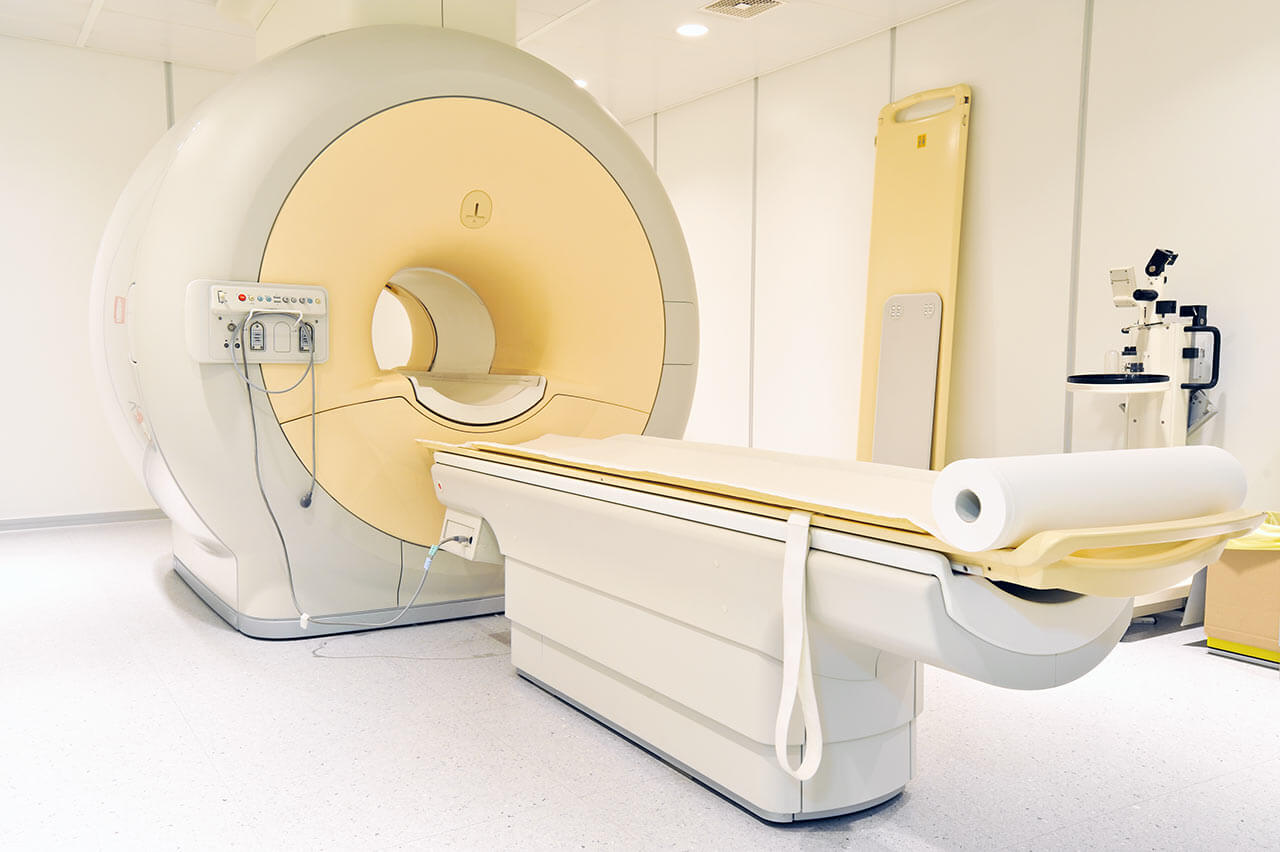
The program includes:
- Initial presentation in the clinic
- clinical history taking
- physical examination
- review of medical records
- laboratory tests:
- complete blood count
- biochemical analysis of blood
- indicators of inflammation (CRP, ESR)
- indicators of blood coagulation
- otorhinolaryngological examination:
- otoscopy
- tympanometry
- audiometry
- x-ray/ ultrasound
- CT scan (on indication 650 €)
- nursing services
- consultation of related specialists
- consultation of the chief physician and all leading experts
- development of individual treatment plan
- written statement
Required documents
- Medical records
- Photo of the target body region
Service
You may also book:
 BookingHealth Price from:
BookingHealth Price from:
About the department
The Department of Adult and Pediatric Otolaryngology, Head and Neck Surgery at the Hospital Schwabing Munich offers the full range of diagnostic and therapeutic services for the patients with ENT diseases. Of particular interest is the treatment of benign and malignant head and neck tumors – the department is a certified member of the Cancer Center Munich. In addition, the department's main clinical focuses include functional and aesthetic nasal surgery, cochlear implantation, minimally invasive sinus surgery and auricular microsurgery. The medical facility also provides competent medical care for traumatic injuries of the ENT organs. The department admits both adults and young patients for treatment. The high professionalism of the department's doctors and rich clinical experience make it possible to successfully treat both simple ENT diseases and especially complex pathologies. The department has a reputation of one of the largest medical facilities of this kind in Munich and offers its patients the very latest treatments available only in the most progressive medical centers in Europe. The department is headed by Prof. Dr. med. Wolfgang Wagner.
The department's specialists have vast experience in cochlear implantation, which is the only effective treatment method for severe hearing loss and deafness. A cochlear implant is a prosthesis, which captures sounds and converts them into electrical impulses. The electrical impulses are directed to the inner ear, which allows the patient to hear. Before deciding on the advisability of cochlear implantation, the attending physician carries out diagnostic examinations: audiogram, otoacoustic emission testing, audiometry using brainstem auditory evoked potentials, brainstem evoked response audiometry, CT and MRI scanning of the temporal bone. If the diagnostic results are satisfactory, and the patient has no contraindications for cochlear implantation (for example, irreversible damage to the auditory nerve, hearing loss due to meningitis, some types of injuries, tumors, etc.), he will undergo surgery. As a rule, the surgical intervention to implant a hearing prosthesis is performed on an inpatient basis. The operation takes about 2 hours and is performed under anesthesia. The first step in implantation is to place the electrode in the inner ear. The placement of the electrode is followed by a diagnostic examination to check its correct placement, after which the surgical intervention is completed. In some cases, 7-10 days after cochlear implantation the patient may need follow-up imaging tests. Like any other surgical intervention, cochlear implantation is associated with a number of postoperative risks – infections, bleeding, facial paralysis. Nevertheless, the department's otolaryngologists have vast experience in cochlear implantation, due to which the risk of complications is practically reduced to zero. About 3-4 weeks after the operation, the stage of adaptation, auditory and speech training begins, since after the placement of a cochlear implant the patient begins to hear sounds, but they seem new and unusual to him. Thus, rehabilitation after surgery is aimed at ensuring that the patient learns to hear, distinguish and understand sounds, as well as spoken language. Cochlear implantation is performed both for children (only up to the period when the child has not yet fully mastered the language) and for adults.
Another priority focus of the department's clinical practice is plastic surgery for nose reshaping – functional and aesthetic one. The department's surgeons specialize in rhinoplasty, septorhinoplasty and septoplasty. The Chief Physician of the department, Prof. Dr. med. Wolfgang Wagner, personally performs all the above mentioned operations for nose reshaping. He has already performed more than 4,000 such operations, so he can deservedly be proud of special successes in this field. The vast experience in the field of nasal plastic surgery allows the specialist to effectively eliminate functional defects, taking into account the aesthetic aspect. Nasal plastic surgery is performed under general anesthesia. The duration of the surgical intervention is 1-3 hours.
An integral part of the work of the department's otolaryngologists is the treatment of head and neck malignancies. The most common types of oncology in clinical practice are oral cancer, tongue cancer, pharyngeal cancer and laryngeal cancer. They account for about 4% of all cancers. In addition, the department provides treatment for malignant facial tumors (it is mostly skin cancer). To make an accurate diagnosis, the patient needs to undergo a set of diagnostic examinations, including ultrasound, CT and MRI scanning of the head and neck, chest and abdominal organs. These tests allow the doctors not only to determine the exact localization of the tumor, but also to find out if the cancer has spread to other organs. The treatment regimen is developed for each patient individually, during the interdisciplinary tumor boards with the participation of otolaryngologists, oncologists, radiologists, chemotherapists and other specialists. In most cases, the basis of treatment is surgical resection of the tumor. The operation is complemented by chemotherapy and radiation therapy. The choice of the optimal treatment method depends on the type of tumor, its location, size, presence or absence of metastases, and other factors.
The specially trained doctors take care of the health of young patients with ENT diseases. Key attention in the field of pediatric otolaryngology is paid to operations on the oropharynx, removal of tonsils, surgery for otitis media and cochlear implantation to treat severe hearing loss. The department's specialists care not only about the high quality of medical care, but also about the comfort of children. They devote enough time to communication with young patients in order to establish trust and help them overcome their fear of the upcoming treatment.
The department's range of medical services includes:
- Diagnostics
- Microscopic and endoscopic examinations of the upper respiratory tract and digestive tract, including ear microscopy
- Head and neck ultrasound scanning
- Audiology, including in children, tonal and speech audiogram, tympanogram, otoacoustic emission testing (TEOAE, DPOAE), brainstem audiometry (with sedation and general anesthesia in children)
- Rhinomanometry
- Smell and taste testing
- Allergy diagnostics (skin tests, nasal provocative tests, etc.)
- Dizziness diagnostics (electronystagmography, craniocorpography)
- Video endoscopy and laryngeal stroboscopy (examination of the vocal cords)
- Voice analytical analysis: assessment of voice field when speaking and singing, voice stress test and spectral analysis
- Endoscopic diagnostics of swallowing disorders
- Diagnostics of snoring and obstructive sleep apnea
- Modern imaging diagnostics of the head and neck: ultrasound, CT, MRI, PET-CT, MR angiography, angiography, radiography
- Electrodiagnostics of the facial nerve in the case of paralysis (electromyography, electroneurography)
- Conservative treatment
- Drug therapy of acute infections and acute allergic edema of the ENT organs
- Drug therapy for acute diseases of the inner ear (treatment-resistant sudden hearing loss, acute tinnitus, acute dizziness, imbalance)
- Drug therapy for acute facial nerve palsy
- Surgical treatment
- Surgical removal of head and neck tumors, including modern reconstructive interventions
- Functional and aesthetic nose surgery
- Rhinoplasty
- Septorhinoplasty
- Septoplasty
- Cochlear implantation for severe hearing loss and deafness (in adults and children)
- Endoscopic and microscopic minimally invasive surgery on the paranasal sinuses and tear ducts
- Treatment of traumatic injuries (for example, midface fractures, soft tissue injuries, skull injuries)
- Microsurgical interventions to improve hearing, including hearing loss and balloon dilatation of the eustachian tube
- Surgery to remove tonsils, including partial removal using coblation or laser techniques, especially in children
- Full range of head and neck surgical procedures for children
- Surgical removal of facial and neck skin tumors, including removal of sentinel lymph nodes
- Skull base surgery using neuronavigation systems (in cooperation with the Department of Neurosurgery)
- Plastic aesthetic facial surgery (for example, nose reshaping, eyelid surgery, scar revision, ear reshaping, repair of defects after accidents or congenital malformations)
- Surgery on the salivary glands, including the use of neuromonitoring to prevent facial nerve lesions
- Surgical treatment of snoring and obstructive sleep apnea
- Other diagnostic and therapeutic options
Curriculum vitae
Higher Education
- 1988 - 1995 Study of Human Medicine at the Johannes Gutenberg University of Mainz. Clinical practice at the Royal London Hospital, at the Hospital Mutterhaus der Borromäerinnen gGmbH in San Francisco and Trier, (one third of a practical year) in surgery at the University of Virginia, USA.
Clinical and Scientific Career
- Since 1995 Clinical and Research Fellow in the Department of Adult and Pediatric Otolaryngology at the University Hospital Tuebingen.
- 1996 Doctoral thesis defense in Radiation Oncology and Doctoral Degree, Johannes Gutenberg University of Mainz.
- 01.1999 - 07.1999 Research in the Molecular Biological Laboratory of the Clinical Research Group in the Department of Otolaryngology.
- 1999 Board certification in Otolaryngology.
- 2002 Position of Senior Physician.
- 2004 Organization and management of the Outpatient Surgery Center in the Department of Otolaryngology at the University Hospital Tuebingen.
- 2004 - 2007 Repeated clinical internships in the Department of Prof. Wolfgang Gubisch, Stuttgart, specialization – nasal plastic surgery (rhinoplasty).
- Since 2005 Head of the Audiology Laboratory, the main research focus – olivocochlear efferent pathways.
- 2006 Additional specialization in Plastic Surgery.
- 2006 Additional qualification in Special ENT Surgery.
- 03.2007 Research Internship at the Eaton-Peabody Laboratory, Harvard Medical School, research subject – olivocochlear efferent pathways.
- 12.2007 Clinical Internship in the Department of Dr. med. Dean Toriumi, University of Chicago, main focuses – nose plastic surgery (rhinoplasty).
- 2007 - 2009 Training at the Academy for Leadership of Baden-Württemberg, seminars for hospital management.
- 03.2008 Habilitation and Venia Legendi. Subject: "Application of otoacoustic radiation for functional diagnostics of the cochlea and its efferent innervation".
- 08.2008 Certificate "Facial Plastic and Reconstructive Surgery", American Board of Facial Plastic and Reconstructive Surgery (FPRS) Examination, Washington.
- 2008 - 2010 Coordinator of the Head and Neck Cancer Center at the University Hospital Tuebingen.
- 08.2009 - 09.2009 Clinical internship in the department of Dr. Mark Urken, Beth Israel Medical Center in New York, the main focus – head and neck tumor surgery; head and neck reconstructive surgery.
- 2009 - 2012 Managing Senior Physician in the Department of Adult and Pediatric Otolaryngology at the University Hospital Tuebingen.
- 03.2012 Additional qualification in Allergology.
- 05.2012 - 03.2014 Head of the Department of Otolaryngology, Head and Neck Surgery at the St. Anthony's and St. Joseph's Hospital Group, Wuppertal.
- Since 06.2012 Extraordinary Professor at the University of Tuebingen.
- From 01.04.2014 Head of the Department of Adult and Pediatric Otolaryngology, Head and Neck Surgery at the Hospital Schwabing Munich.
Qualifications
- Board certification in Otolaryngology.
- Additional qualification in Special ENT Surgery.
- Additional qualification in Plastic Surgery.
- Additional qualification in Allergology.
- International certification in Facial Plastic Surgery.
Clinical Interest
- Facial plastic surgery, special focus on functional and aesthetic nasal surgery (septorhinoplasty and rhinoplasty).
- Minimally invasive sinus surgery.
- Surgical treatment of head and neck tumors, including reconstructive interventions.
- Hearing improvement surgery, including cochlear implantation for the most serious hearing impairments and hearing loss.
Research Interests
- Efferents from the olivocochlear system (particularly, the role of efferents in disorders of cochlear function and recognition of sound signals, further development of measurement methods on the basis of the otoacoustic emission test).
- Application of otoacoustic emission.
- Participation in research on ENT cancers.
Memberships in Professional Societies
- German Society of Oto-Rhino-Laryngology, Head and Neck Surgery (DGHNO).
- Board Member of the Working Group for Plastic, Reconstructive and Aesthetic Head and Neck Surgery (APKO) of the German Society of Otolaryngology, Head and Neck Surgery (DGHNO).
- Newsletter Editor of the European Academy of Facial Plastic Surgery.
- German Society of Plastic and Reconstructive Surgery.
- Working Group of German-Speaking Audiologists, Neurootologists and Otologists (ADANO) of the German Society of Oto-Rhino-Laryngology, Head and Neck Surgery (DGHNO).
- German Professional Association of Otolaryngologists.
- Interdisciplinary Working Group for the Study of Head and Neck Tumors of the German Cancer Society.
Photo of the doctor: с) München Klinik Schwabing
About hospital
The Hospital Schwabing Munich is one of the oldest medical facilities in the Schwabing region with a history of over 100 years. The hospital is proud of the excellent state-of-the-art equipment, modern infrastructure, highly professional medical personnel and location in a picturesque park area. The medical complex is the academic hospital of the University Hospital of Ludwig Maximilian University of Munich and the University Hospital Rechts der Isar Munich, therefore, it offers unique innovative diagnostic and treatment methods. The treatment can be provided both on an inpatient and outpatient basis. The work of the medical center is based on an individual approach to each clinical case, as well as on the strictest adherence to high standards of quality, hygiene and safety.
The hospital has a large number of beds for patient hospitalization – more than 700 beds. The medical facility admits over 125,000 patients for diagnostics and treatment, and this figure grows steadily every year, which indicates the authority of the hospital not only in the region, but also throughout the country. In addition, the medical center often admits foreign patients for medical treatment.
The hospital presents almost all the main areas of modern medicine, including oncology, surgery, gynecology, gastroenterology, endocrinology, diabetology, otolaryngology, pulmonology, thoracic surgery, orthopedics, traumatology, neurosurgery, etc. In addition, the specialists of the hospital admit young patients for treatment, providing them with proper medical care.
Particular attention should be given to the competent team of doctors who have vast clinical experience, thanks to which they provide patients with effective treatment even in particularly complex clinical cases. According to the prestigious Focus magazine, many doctors of the clinic have been repeatedly ranked among the best German specialists. The experts also take care of the patients' comfort during treatment, surround them with care and show a humane attitude, supporting patients on their way to recovery.
Photo: (с) depositphotos
Accommodation in hospital
Patients rooms
The patients of the Hospital Schwabing Munich live in comfortable single, double and triple rooms with a modern design. The patient rooms have everything necessary for maximum comfort of patients. Each patient room has an ensuite bathroom with shower and toilet. All patient rooms are equipped with a telephone, which is available for an extra fee via a special card. The standard room furnishings include an automatically adjustable bed, a bedside table, a wardrobe, a table and chairs for receiving visitors. Wi-Fi is also available in the patient rooms.
If desired, the patient can stay in the enhanced comfort patient room, which additionally includes a safe, a minifridge and upholstered furniture.
The hospital also has a library with a large assortment of books, magazines, CDs and DVDs, a shop, a hairdressing saloon and a cafe where the patient can enjoy tasty snacks or a cup of hot tea, aromatic coffee and soft drinks.
Meals and Menus
The patients of the hospital are offered tasty and healthy three meals a day: breakfast, lunch and dinner. All dishes are cooked from fresh food available in the region. Breakfast and dinner are served buffet style, while for lunch the patient has a choice of three menus.
If you are on a specific diet for some reason, you will be offered an individual menu. Please inform the medical staff about your dietary preferences prior to the treatment.
Further details
Standard rooms include:
Religion
The religious services are available upon request.
Accompanying person
During the inpatient program, the accompanying person can live with the patient in a patient room or a hotel of his choice. Our managers will help you choose the most suitable option.
Hotel
During the outpatient program, the patient can stay at the hotel of his choice. Our managers will help you choose the most suitable option.




